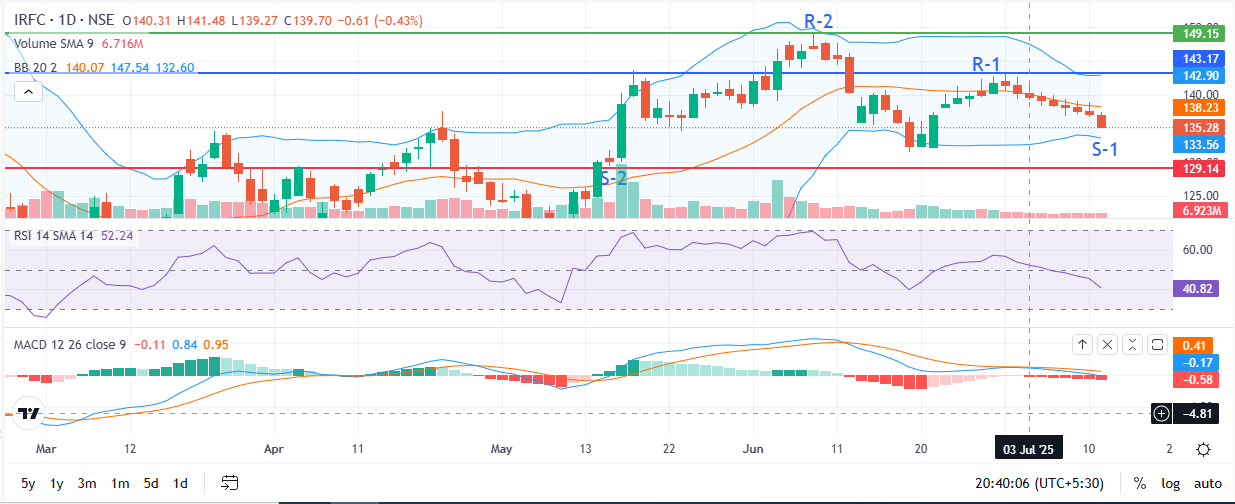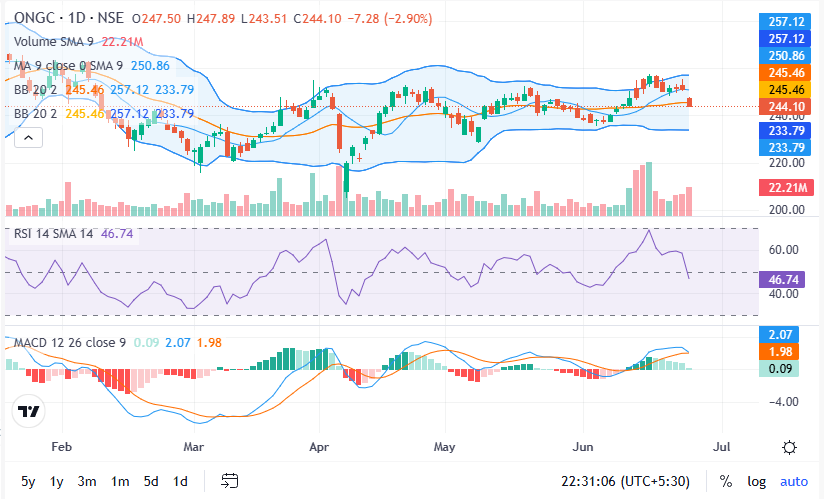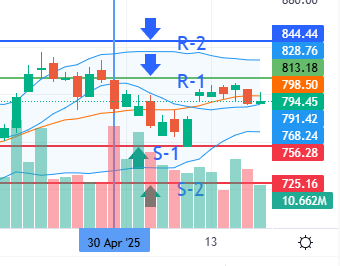Top 5 Psychology Hacks to Improve Trading Mindset
Master the psychology of trade! Discover 5 powerful tips to boost your trading mindset, control emotions & make smarter investment decisions every time.
Psychology's Significance in Stock Analysis Prior to Investing

The topics of finance, ratios, charts, and market patterns are typically discussed when discussing the analysis of equity shares. However, the psychology of the market and the investor is one of the most neglected yet important components of effective investing.
Profit or loss is frequently determined by the mindset of the investor. Even with the strongest financial strategy in place, things can go awry if your emotions get in the way of your self-control. The psychological aspect of stock analysis will be discussed in this NexGen Trade article, along with the reasons it is equally, if not more, important than technical or fundamental analysis.
Profit or loss is frequently determined by the mindset of the investor. Even with the strongest financial strategy in place, things can go awry if your emotions get in the way of your self-control. The psychological aspect of stock analysis will be discussed in this NexGen Trade article, along with the reasons it is equally, if not more, important than technical or fundamental analysis.
What is psychology of the stock market?
The term "stock market psychology" describes the general attitude, feelings, and prejudices of investors that affect their decisions to purchase and sell. These emotional factors frequently influence prices more than conventional finance or fundamental analysis would support.
The psychology of the stock market has two main dimensions:
Market psychology: is the study of the attitudes and actions of the masses.
Personal psychology: How you react to pressure, anxiety, and greed as an individual investor.
Making poor investment choices can result from ignoring either of these.
The psychology of the stock market has two main dimensions:
Market psychology: is the study of the attitudes and actions of the masses.
Personal psychology: How you react to pressure, anxiety, and greed as an individual investor.
Making poor investment choices can result from ignoring either of these.
Reasons to Consider Psychology Before Investing
1. Market Prices Don't Just Reflect Value, They Reflect Emotion
Although the price of equities shares is determined by fundamentals, mass behavior, such as herd mentality, panic selling, euphoria, or fear of missing out (FOMO), also has a significant impact. These feelings have the power to skew stock prices away from their true value.
Instead of responding too late, you can identify bubbles or falls before they occur by knowing market psychology.
Instead of responding too late, you can identify bubbles or falls before they occur by knowing market psychology.
2. Your Investment Discipline May Be Abandoned by Emotions
Have you ever clung onto declining stocks in the hopes that they would rise again? Or panicked at a dip and got out too soon?
These are prime illustrations of how one's own prejudices can undermine a carefully considered financial strategy. It's critical to recognize these psychological traps, which include confirmation bias, loss aversion, and overconfidence.
These are prime illustrations of how one's own prejudices can undermine a carefully considered financial strategy. It's critical to recognize these psychological traps, which include confirmation bias, loss aversion, and overconfidence.
3. Assists in Maintaining Reasonability in Changing Markets
The volatility of the Indian stock market is well-known. Markets can fluctuate sharply in response to interest rate decisions, geopolitical developments, and budget announcements.
An investor with psychological awareness resists being carried away by day-to-day swings. Rather, they adhere to their plan, successfully control risks, and keep a long-term perspective on wealth accumulation and finance.
An investor with psychological awareness resists being carried away by day-to-day swings. Rather, they adhere to their plan, successfully control risks, and keep a long-term perspective on wealth accumulation and finance.
Typical Psychological Prejudices in Investing
The following biases influence how stocks are analyzed, and decisions are made:
1. Bias in Confirmation
You just look for evidence to back up your beliefs. You disregard the warning signs if you have an optimistic outlook on a stock.
2. Aversion to Loss
The anguish of losing money outweighs the happiness of winning it. Holding terrible stocks for too long is often the result of this.
3. The Herd Mentality
It's common to follow the herd without conducting independent investigation during IPO frenzy or bull runs.
4. Bias in Overconfidence
Having a few prior wins makes you believe you're always correct, which might result in rash and poorly thought-out financial choices.
5. Recency Bias
Disregarding long-term principles or historical trends in favor of present happenings.
🧘♂️ How Stock Analysis Can Include Psychology
✅ 1. Create a trading and investment strategy
Put your objectives, risk tolerance, entry/exit guidelines, and stop-loss limitations in writing. Adhere to the plan, particularly when the market is volatile.
✅ 2. Maintain a Journal
Keep track of your deals, as well as your feelings and thoughts now. This enables you to grow from previous psychological errors.
✅ 3. Make Use of Checklists
Prior to purchasing stock, inquire:
Am I behaving based on facts or fear?
Have I done my homework?
If the stock drops 10%, what will I do?
Am I behaving based on facts or fear?
Have I done my homework?
If the stock drops 10%, what will I do?
✅4. Steer clear of trading when feeling strongly
Waiting is preferable if you're feeling extremely anxious or enthusiastic. Trades motivated by emotion typically backfire.
✅ 5. Recognize Market Attitude
To find out what people are thinking, look at social media trends, news flow, and sentiment indicators. When necessary, this can assist you in defying the crowd.
Market Psychology Volatility Index (VIX) Measurement Tools 🛠
It displays anticipated market volatility and is frequently referred to as the "fear gauge."
The put-call ratio shows if more people are placing bets on a rise or a decline.
Social Media/Forum Trends: Retail sentiment is reflected on sites like YouTube, Quora, and Twitter.
The put-call ratio shows if more people are placing bets on a rise or a decline.
Social Media/Forum Trends: Retail sentiment is reflected on sites like YouTube, Quora, and Twitter.
Real-World Illustration
Due to a soaring market following the COVID catastrophe, a number of Indian individual investors flocked into equities shares in early 2021. Due to the excitement on social media, many people purchased little caps. The majority panicked and sold at a loss when the correction occurred in 2022.
Investors were better positioned to protect cash and reinvest at reduced prices if they understood crowd psychology and stayed away from the hoopla.
Investors were better positioned to protect cash and reinvest at reduced prices if they understood crowd psychology and stayed away from the hoopla.
⚖️ Harmonizing Technical and Fundamental Analysis with Psychology
Psychological analysis is a potent addition to other forms of analysis, not a substitute.
Value understanding is the result of fundamental examination.
Technical analysis is the ability to comprehend timing.
Analyze behavior using psychology to understand it.
When combined, these offer you a comprehensive perspective that helps you make wiser financial decisions.
Value understanding is the result of fundamental examination.
Technical analysis is the ability to comprehend timing.
Analyze behavior using psychology to understand it.
When combined, these offer you a comprehensive perspective that helps you make wiser financial decisions.
Concluding Remarks
Selecting the appropriate equity shares is only one aspect of stock market success; self-management is another. From Rakesh Jhunjhunwala to Warren Buffett, the best investors have highlighted the importance of self-awareness, patience, and discipline.
Understanding psychology, in our opinion at NexGen Trade, is what distinguishes exceptional investors from mediocre ones. Examine the firm, yourself, and the state of the market before purchasing any shares.
Understanding psychology, in our opinion at NexGen Trade, is what distinguishes exceptional investors from mediocre ones. Examine the firm, yourself, and the state of the market before purchasing any shares.
Disclaimer:
This material is not intended to be financial advice; rather, it is meant to be informative and educational. There are risks associated with stock market investment, therefore before making any decisions, readers should conduct independent research or speak with a licensed financial counselor. These are the author's thoughts and may not represent those of NexGen Trade or its affiliates.




